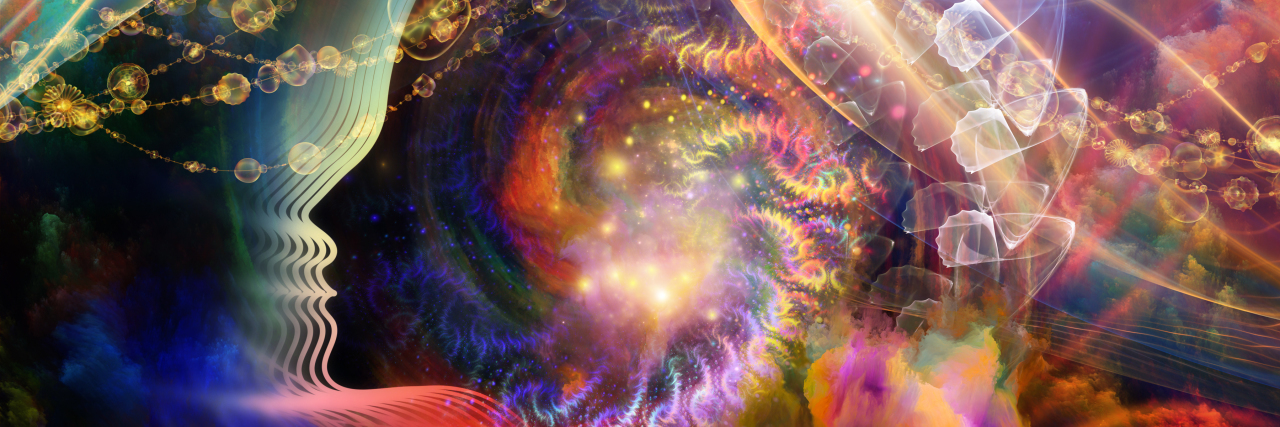When I was finally diagnosed with nonverbal learning disability in my mid-20s, I like to say that suddenly my whole life made sense. Here are nine ways it showed itself and how my family and I managed to explain most of them away for years.
1. Lack of balance, coordination and motor skills.
I was a preemie, born at 34 weeks which we knew caused a lot of issues with my eyes and vision. My best-corrected vision is 20/40 — 20/60, I have poor night vision, slight color blindness, and very little depth perception. If you have poor vision and almost no depth perception, you’re going to be uncoordinated, run into stuff and trip a lot! Turns out, I lack visual-spatial awareness too.
2. Zero sense of direction.
One very common symptom is constantly getting lost, and I mean constantly. This is something my mom struggles with, though much less severely, to the point that it became a running joke. We assumed this one was genetic, joking that I inherited her sense of direction, or lack thereof.
3. Advanced vocabulary.
Mom has always read a ton and used a large vocabulary, it was assumed I just picked it up.
4. Constantly questioning.
Those with NLD are known to ask a lot of questions, like incessantly. Instead of physically exploring the environment around us and relying on our faulty spatial awareness, balance, coordination and motor skills, we just ask questions about everything. When asked why they bothered to answer me all day long, my parents said, “How else is she going to learn?”
5. Amazing memory for the tiniest details.
Whether it was remembering a minute detail of my favorite movie, or quoting back verbatim what I had been told or overheard in conversation, even years later, it was the cool thing I was always able to do, and I loved showing it off.
6. Talking to myself.
I have always talked to myself. When I was little, it was to imaginary friends, but as I got older, I didn’t stop, and it got harder to hide. It’s natural for me, and when I tried to stop, I never could. Turns out, it’s just part of how I process the world: converting the nonverbal and abstract into words my brain can more easily manage.
7. Academic struggles.
Once I started school, I really struggled when it came to learning to tell time, count money, write neatly and read. We thought the reading issue was at least somewhat related to my vision. My dad’s handwriting is absolutely horrendous, and concerns about the rest of it were met with, “Everyone struggles with math and reading.” As I got older, my teachers’ theory was that my issues were of maturity rather than neurology, and could be disciplined out of me. Needless to say, constantly being told I was “immature, spoiled, coddled, lazy, irresponsible, or just not trying” failed to improve the situation, and only led to anxiety, depression and low self-esteem.
8. Mental illness.
While not everyone with NLD contends with mental illness, it is rather common, and it’s a major component for me personally. I always say I was born anxious. For as long as I can remember, I’ve been afraid of everything. I thought it was normal to have adrenaline coursing through your veins 24/7, I never knew any different. I also had some OCD-like tendencies, and suicidal depression hit at puberty. How did this get missed? I have an extensive family history on both sides of these exact conditions! We again assumed that one was genetic, and part of it may be.
9. Sensitive startle reflex.
Speaking of sudden loud noises, my dad always commented on my hypersensitive startle reflex, saying one time “You look like you’re having a seizure.” When I finally found NLD, I read that this is a common symptom, with more exaggerated startle response on the left side of the body. I realized it was always only my left side.
So, while NLD looks different for everyone, this is what it looked like for me before it had a name. Sometimes I still wonder how we missed it. But, maybe by writing this, someone else who sees themselves in this list can get their answer sooner than I did.
Getty image by AGS Andrew.

